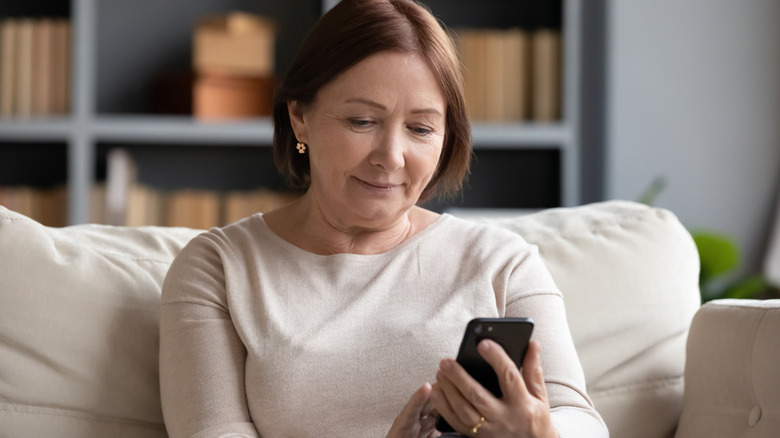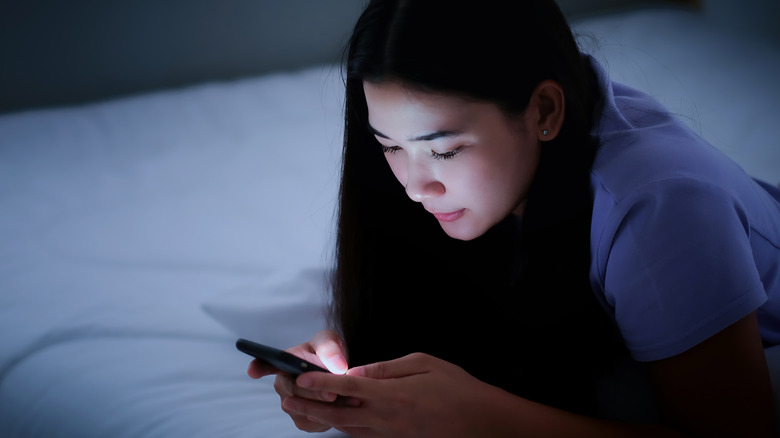Can The Blue Light From Your Devices Really Cause You To Age Faster?
If you're reading this, you're exposing your eyes to blue light. Most digital devices such as computer screens or smartphones emit this blue wavelength, according to Harvard Health Publishing. Although blue light, which naturally comes from the sun, can boost our mood and attention during the day, it can disrupt our sleep patterns at night. Too much exposure to artificial blue light from our screens can also accelerate our aging, according to a recent study in Frontiers in Aging.
The study exposed fruit flies to blue light for 10, 14, or 16 days while keeping others in continual darkness to serve as a control group. The flies that were subjected to blue light for 14 and 16 days had significant brain degeneration. Blue light also disrupted energy production in the brain and caused an imbalance in the brain's neurotransmitters.
In a news release about the study, the senior author Dr. Jadwiga Giebultowicz said that limiting exposure to artificial blue light can slow the progression of aging. "Excessive exposure to blue light from everyday devices, such as TVs, laptops, and phones, may have detrimental effects on a wide range of cells in our body, from skin and fat cells, to sensory neurons," Giebultowicz said.
How we can protect ourselves from blue light
Blue light can be more damaging as we age. A 2022 study in the journal npj Aging found that degeneration in the brain was more significant in older fruit flies than in younger ones. Too much blue light can also cause significant damage to our eyes, according to a 2020 review in Biomedicine & Pharmacotherapy. However, this study found that you can reduce oxidative stress to your eyes by taking in antioxidants such as lutein, curcumin, and vitamin E.
You can also find ways to block your eyes from excessive blue light by wearing special glasses or using software that controls its emission. Harvard Health Publishing suggests using dim, red lights in the evening because they don't suppress as much melatonin as the blue lights. About two or three hours before bedtime, limit your screen time to help you sleep. This also includes watching TV before bed.
The new study found that the brain's degeneration was repaired when the flies returned to complete darkness, so be sure to get plenty of sleep each night with the lights off.


